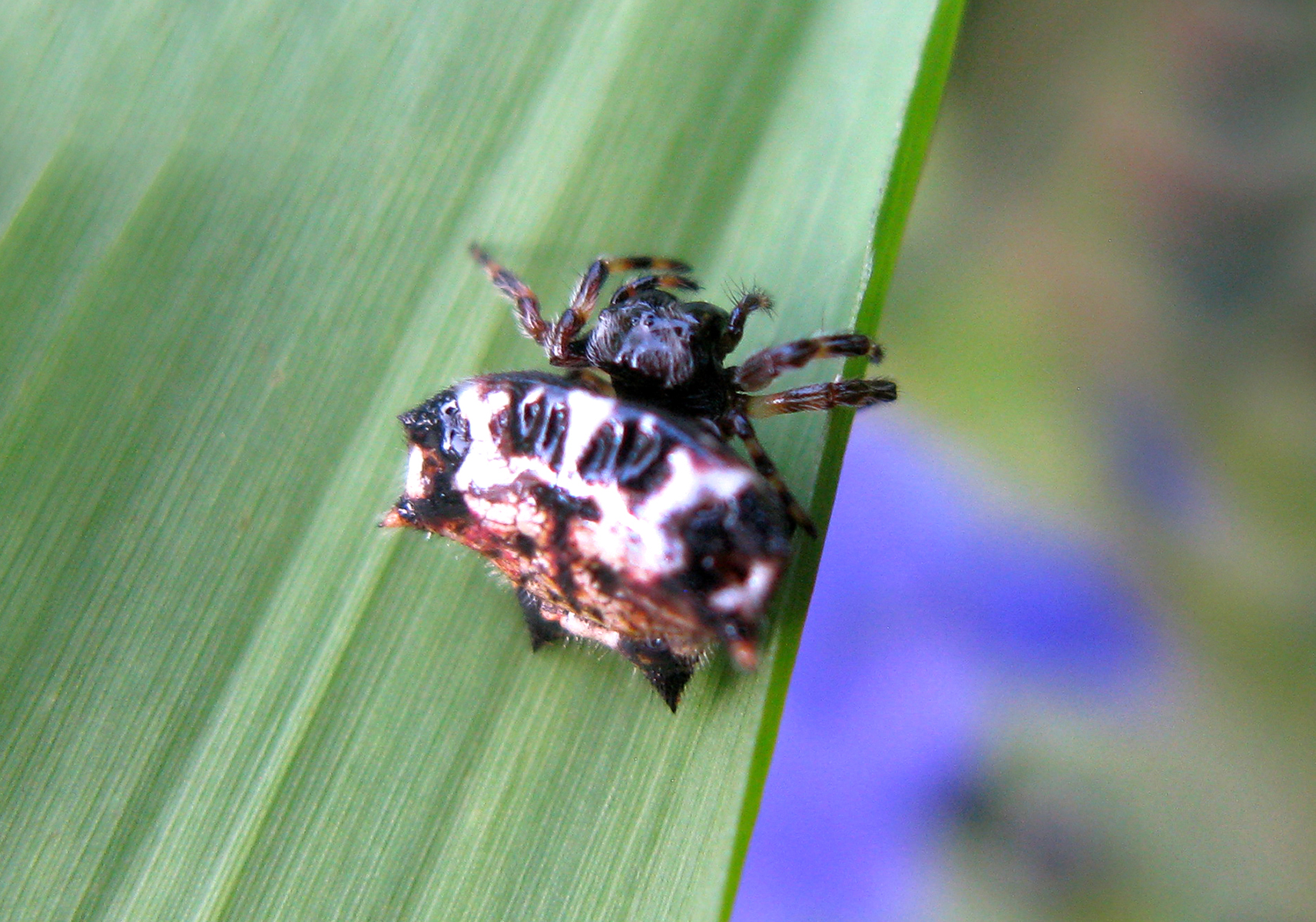Gasteracantha kuhli, belonging to the genus Gasteracantha, is one of the spiny orb-weaver spiders, a group noted for their distinctive, hard, spiny abdomens and the colorful, geometric webs they construct. These spiders are easily recognizable due to their unique appearance, which serves as a deterrent to predators. Gasteracantha kuhli showcases a hard, spiny abdomen, often brightly colored or patterned, which aids in predator deterrence and camouflage. Like other orb-weavers, they construct circular webs with radial designs to catch prey.
Black-and-white Spiny Spider
Gasteracantha kuhli
Home » Encyclopedia » Animals » Spiders » Black-and-white Spiny Spider
Classification
KINGDOM
:
Animalia
PHYLUM
:
Arthropoda
CLASS
:
Arachnida
ORDER
:
Araneae
FAMILY
:
Araneidae
GENUS
:
Gasteracantha
SPECIES
:
Gasteracantha kuhli
Other Information
Venomous?
As with most orb-weaver spiders, Gasteracantha kuhli is venomous, utilizing its venom to immobilize prey caught in its web. However, the venom is generally harmless to humans, causing no more than mild, localized discomfort if bitten.
A Danger to Humans?
There is minimal danger to humans from Gasteracantha kuhli. These spiders are not aggressive towards humans and tend to avoid encounters. Bites are extremely rare and not considered medically significant.
Population Status
Specific data on the population size of Gasteracantha kuhli is limited. However, the species, like many orb-weavers, is often found in suitable habitats where conditions allow for the successful construction of webs and access to prey.

Black-and-white Spiny Spider (Gasteracantha kuhli), Photo by David Lowenthal
Life Span:
The lifespan of Gasteracantha kuhli, as with many spiders, typically spans about a year, allowing for a cycle of reproduction that includes mating, egg-laying, and raising new offspring within a single season.
Weight and Length:
Female black-and-white spiny spiders are 6–9 millimeters wide and possess hard, shiny abdomens armed with six black conical spines. Males are much smaller at 3–4 millimeters in size, and in place of spines, they have small bumps on their abdomens.
Distribution:
Gasteracantha kuhli is found in widespread from India to Japan, the Philippines, and (Java, Bali) in Indonesia.

Black-and-white Spiny Spider (Gasteracantha kuhli), Photo by David Lowenthal
Habits and Lifestyle:
These spiders are diurnal, spending daylight hours maintaining their webs or waiting for prey. The web’s location is often in open areas where the spider can catch flying insects, their primary food source.
Diet and Nutrition:
Gasteracantha kuhli preys on a variety of insects that become ensnared in its web. The diet includes flies, mosquitoes, and other small flying insects, playing a role in controlling pest populations.
Mating Habits:
The mating process involves careful approach by the male to avoid being mistaken for prey by the female. After mating, females lay eggs in silk sacs, often attaching them to the underside of leaves or in hidden locations near the web for protection.
